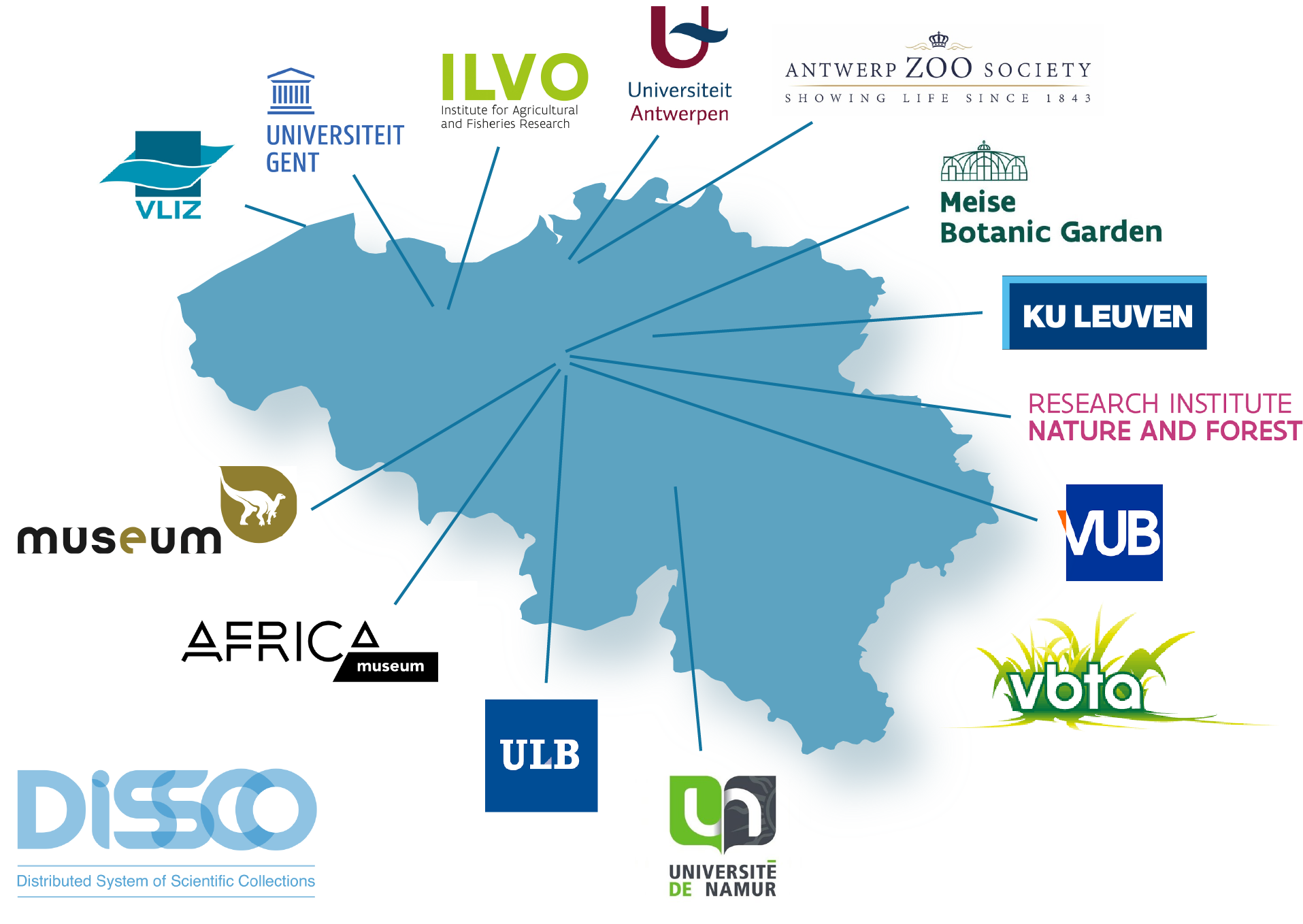DiSSCo Flanders PowerBI dashboard
The DiSSCo Flanders use-case examined regional Flemish collections through a survey. Discover the findings of this research on natural science collections and gain insights into the historical and current state of biodiversity. The use of a PowerBI dashboard for the graphical representation of the collections enhances their visibility for both scientists and policymakers.
DiSSCo Flanders Consortium
The consortium exists of the Flemish universities, research institutions, and an association of botanical gardens and arboreta. Associated to the project are the Federal Belgian collections to ensure aligned policies and procedures.
.jpg)
